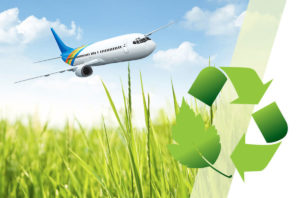 Now that the 40B sustainable aviation fuel (SAF) tax credit guidance and modified GREET model has been released, the ethanol industry may have scored a ticket to fly but there’s still a few mechanical problems to sort out before take off.
Now that the 40B sustainable aviation fuel (SAF) tax credit guidance and modified GREET model has been released, the ethanol industry may have scored a ticket to fly but there’s still a few mechanical problems to sort out before take off.
The new 40B GREET model will recognize GHG reductions from carbon capture and sequestration (CCS), renewable natural gas, and renewable power used to produce ethanol for qualifying SAF and include a “safe harbor” pilot program for corn ethanol produced with bundled climate-smart agriculture (CSA) practices.
Renewable Fuels Association President and CEO Geoff Cooper says they view this as a starting point. “We are encouraged that, for the first time ever, this carbon scoring framework will recognize and credit certain climate-smart agricultural practices. We’re also pleased to see the integration of other carbon reduction strategies—like renewable process energy and carbon capture and sequestration—into the model. However, RFA believes less prescription on ag practices, more flexibility, and additional low-carbon technologies and practices should be added to the modeling framework to better reflect the innovation occurring throughout the supply chain.”
American Coalition for Ethanol (ACE) CEO Brian Jennings says while the announcement a step in the right direction, it’s not likely to make a difference this year. “With the 2024 planting season underway and the expiration of the 40B credit on December 31, 2024, Treasury’s SAF guidance speaks more to the Administration codifying the important role CSA practices play in decarbonizing liquid fuels than the amount of ethanol-to-jet that will qualify for the 40B credit,” said Jennings. “Ultimately, we need to enable farmers and ethanol companies to recoup value from these tax credits for their investments to reduce GHG emissions.”
Jennings says ACE is leading USDA-funded Regional Conservation Partnership Program (RCPP) projects that will generate scientifically significant datasets of the GHG reduction benefits of CSA practices used to produce ethanol in various regions across the country. “We look forward to continued engagement with Treasury, USDA and DoE with respect to how the GREET model will apply to 45Z, which will not require bundling of CSA practices,” said Jennings.
Learn more in this interview:
ACE CEO Brian Jennings on SAF tax credit guidance 15:40

